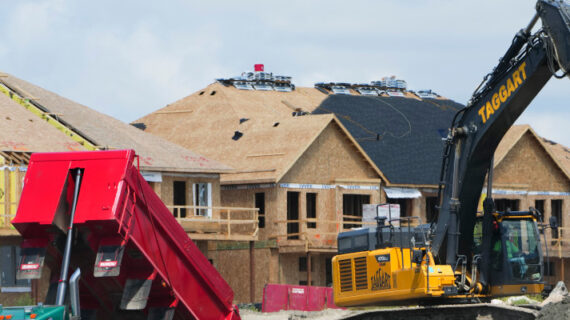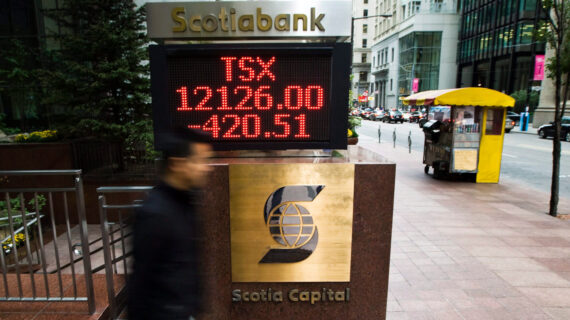In this Hub Dialogue, The Hub’s editor-at-large Sean Speer speaks to Raquel Dancho, the Conservative Party candidate in Kildonan—St. Paul.
This conversation has been revised and edited for length and clarity.
Sean Speer
As part of The Hub’s ongoing series, Hub Dialogues: Policy in Action, I’m pleased to be joined by Conservative MP Raquel Dancho. MP Dancho, who represents the riding of Kildonan—St. Paul, was first elected in 2019 and has since distinguished herself as a new and different voice in Conservative politics on issues such as protecting and expanding maternity leave benefits and speaking to the issues facing younger votes more generally.
We’re speaking in the lead up of a much-anticipated federal election campaign [this conversation occurred on August 13] and will talk about MP Dancho’s views on the factors behind low voter turnout for young people and what issues she wishes would generate more attention in the pending campaign.
Raquel, thank you for joining us.
MP Dancho
It’s my pleasure. Thank you for having me.
Sean Speer
You have an interesting background and set of experiences prior to becoming an elected official. You were, among other things, a political aide to various provincial Cabinet ministers, which means that you’ve had the opportunity to be on both sides of the table as an unelected advisor giving advice, and now as a member of parliament receiving advice.
How has the experience of wearing these two different hats affected how you carry yourself as a member of parliament? And what things do you see now, as an elected official, that wish you knew back then as an advisor?
MP Raquel Dancho
Great question. There’s a lot of elected officials that were once staffers who were involved at some level prior to getting elected themselves. It certainly inspires you. You really learn the mechanics behind policy and governance when helping elected officials do their jobs.
I worked for several cabinet ministers provincially which provided insight into how the communications work, how the department itself works, how you get information from the system. It certainly helps to understand how all of this work together. When you previously worked to help make sure all of these mechanics behind the scenes all flow together, it provides a first-rate education on how politics and policy ultimately work.
But there are some key differences too. When you’re when you’re behind the scenes, you feel pressure to deliver. When you’re an elected official actually having to go out and speak to the media or speak in the House or speak to constituents, when you’re the one ultimately on the ballot, there’s certainly a lot more pressure. As an advisor, I understood this at some level, but you don’t really know until you’re an elected official.
I would say have now being an MP for two years, I have even more of an appreciation for the pressure and scrutiny that the elected officials I worked with or worked for faced on a daily basis. My appreciation for those who do these crazy jobs has grown significantly. It was already there, of course, but it’s even higher now.
Sean Speer
You’ve distinguished yourself in Parliament as someone committed to a set of issues relevant to younger voters. Can you reflect on why you think younger voters, specifically millennials, tend to vote less than the national average? What do you think that’s stopping younger Canadians from getting more involved in the political process?
MP Raquel Dancho
There’s probably a bit of natural apathy when you’re young. You’re focused on school or training in some regard, you may have fewer responsibilities, you often aren’t married or have kids, you may not have mortgage. You’re just busy figuring out your life and where you fit in the world.
But as you get older, you have greater responsibilities, you start to pay more taxes, and you come to feel more invested in a community or neighbourhood. People start to pay attention to the headlines a bit closer and, whether it’s at the municipal, provincial or federal level, may say, “I don’t like how that’s running” or “I think it should be done this way.” You start to feel like you have a much bigger stake in the country and our society.
This may be why, for instance, that the data tell us people generally become more conservative as they get older. There’s something to the idea of greater responsibility and greater investment in one’s community and country causes people to take interest, take note, and often times move in a more conservative direction.
For whatever reason, though, I may be a bit of an outlier. I’ve been a conservative my whole life. I think my place in the party, and the number of young people in the party, is starting to challenge the common narrative of what a conservative is and what he or she cares about. We’re helping to shape a new conservative image and vision for the next generation. I think it’s really an exciting time to be a Conservative MP who is a millennial. I think we’ve made a lot of progress, and I hope that ultimately translates into reaching new and different voters in the future.
Sean Speer
You’ve had a different set of responsibilities since you were first elected including serving as a member of the shadow Cabinet. In recent months, you’ve come to prioritize a set of issues that go beyond, say, deficits and debt and instead that might be described as concerned about overall well-being of Canadian families. Can you reflect a bit on your current policy work and why you think that it’s important to focus on those issues?
MP Raquel Dancho
Again, it comes back to translating what it means to be a conservative for a new generation of voters. For me, my conservative values are very family-oriented. I start with the basic principle that helping families manage modern pressures will help to sustain and strengthen them and in turn will be good for our economy and society.
When it came to the recent maternity issue I’ve been working on, it was sort of a no-brainer for me. There was an anomaly in the Employment Insurance system whereby working mothers who were laid off due to the pandemic may miss out on their maternity benefits. This was self-evidently unfair. The only reason that they failed to reach the necessary number of employment hours was outside of their control. I worked hard with my colleagues (including NDP members of parliament) in order to advocate that the government fix the problem and solve the unfairness.
I was also involved in advocating that the government not cut disability funding for the Centre for Equitable Library Access and the National Network of Equitable Library Services that provide reading materials for Canadians who have visual impairments.
These are issues that people may not tend to associate with Conservatives and conservative ideas. But, for me, they really fit into my value system as a conservative. The disability funding issue, for instance, is an example of a compassionate, community-level initiative that I’m really focused on as an alternative to a false binary between the individual and the state. I feel like the new generation of conservatives are really looking at how we interpret policy based on our conservative values, but in a contemporary way. In that sense, I think that compassionate, community-level support and the support for women and growing families goes hand in hand.
Sean Speer
One of the things that is commonly expressed in a lot of media and political analysis is the idea of balancing regional differences in a country as big and diverse as Canada. You’re basically smack dab in the middle of the country. As a Manitoban and someone who’s worked at the provincial level and now is a federal elected official, to what extent is national unity and regional issues a matter of concern? What’s the right way to go about strengthening national unity and working across some of these regional differences?
MP Raquel Dancho
If you were born in the 1990s and came of age in the 2000s, you may not remember when the country was more fractured during the creation of the Canadian Charter of Rights and Freedoms, the negotiations of the Meech Lake Accord and the Charlottetown Accord or when Quebec separatism was at an all time high in early 1990s. These may only be distance issues that you heard about in school or from your parents.
We went through a period of relative stability on the national unity file for quite some time under Stephen Harper. It’s a major, underestimated accomplishment of the last Conservative government. But now we’re seeing a great resurgence of Quebec separatism and growing Western alienation. For me, as a proud, patriotic Canadian, it’s very concerning to see the country so divided and becoming more and more divided.
On a general policy level, there’s an urban and rural divide as well. I think that they can work together collectively, but there seems to growing polarization between the issues facing rural Canada and those facing our larger urban centres. The issues and perspectives seem quite different and it can be difficult to find ways to address this disconnect across a number of policy issues.
I grew up in a rural town in central Canada, and then I was educated in Montreal, which of course is a big metropolitan. I like to think that these experiences have given me a unique understanding and perspective that some who haven’t lived in both urban and rural places may not have. I also benefit from representing a Manitoba riding. Manitoba politics have a unique, collaborative aspect to them and I’ve tried to bring that to my work in Ottawa.
Because of my experience and perspective, it serves our party very well, and I do feel it serves the country well too. Having been the shadow minister for Diversity Inclusion and Youth, the shadow minister for Immigration, Citizenship and Refugees, and now the shadow minister for Future Workforce Development and Disability Inclusion, drawing on this eastern and western perspective as well as a rural and urban and generational point-of-view, is important.
As a politician, you don’t want to just look at policy issues from a singular view. And being a young, female conservative adds another interesting layer. I think all those experiences and perspectives has really served me well. They’ve helped with my ability to communicate and approach policy issues from different vantage points that’s ultimately very helpful in building bridges and bringing people together.
Sean Speer
The elephant in the room for this conversation is the forthcoming election. In fact, when this dialogue is released [it was recorded on August 13, 2021], we should be well into a campaign according to most reports. One can speculate the types of issues that will dominate debate. Why don’t you give us one or two issues that may not reach the level of national consciousness or attention, but that is something Canadians ought to be concerned about, and debating in the context of a federal election campaign?
MP Raquel Dancho
Oh, I wish we had a lot more time. I have been door knocking, in preparation of an election call, and I’ve grown increasingly concerned that these are a lot of issues that aren’t penetrating at the local level. At the moment, it’s “COVID, COVID, COVID, COVID, COVID.” But there’s a lot of other problems that we’re facing.
We already talked about national unity. That’s a big one for me. If we as a country don’t identify as Canadians and as people that want to be in this country together, being on the same page on most things, and driving forward based on a common dream of what we want this country to become, I think that does not bode well for the future. We shouldn’t assume that Confederation is a given. It takes a lot of hard work, and I’m not quite seeing that leadership from the federal level. That greatly concerns me.
National security is something that I’m very concerned about as well. Foreign policy is rarely a top three voting issue. But there’s some much happening in the world right now. China is certainly a hot button issue. I hope that becomes parts of the election dialogue. We also don’t talk enough about Arctic sovereignty in this broader set of questions about national security and foreign policy.
A final one is the big questions that will shape the future of economic prosperity in Canada. I think people have largely forgotten the debt crisis in the 1990s, but I foresee, as some economists have indicated, that our current spending levels and deficits and debt may become seriously problematic if interest rates rise. I mean, we’ve added more to the national debt in two years then we had in the previous 150 years. That’s not sustainable. There could be big consequences if interest rates were to go up. We’re already seeing inflation, and we know the impact of high government debt and inflation, and how those two go together.
If we keep spending and accumulating debt this way, there are real risks of a combination of tax increases and spending cuts. That’s what happened in the 1990s when we saw cuts to Employment Insurance, cuts to education transfers, and health transfers due to the high federal debt. A lot of tough decisions had to be made, and I would hate for us to get there again as a country. We must therefore come to restore greater discipline in our budgeting as we get through the pandemic.
Sean Speer
Thanks for those thoughts particularly on the lack of attention paid to national security and foreign policy issues. These are issues that we’ve similarly tried to draw attention to at The Hub especially in light of the awful news coming out of Afghanistan.
More generally, thank you very much for your time. We know it’s a very busy time for you, so we’re grateful to have this dialogue with you today.
MP Raquel Dancho
Oh, thank you so much, Sean. It’s really great the work that you and the team at The Hub are doing.




